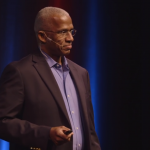Checking references might seem like a boring or unpleasant part of filling a position at a conscious company. But as a values-driven leader, your actions matter as much here as they do in all others areas of creating a purpose-driven workplace.
To illustrate the point, imagine this scenario: A private equity firm is about to hire a new CEO for one of their investee companies. Let’s call this person Sarah. Everything looks great, until someone from the private equity firm decides to find their own references, not the references Sarah provided. Sarah hears from friends and former colleagues that the organization is doing back-door reference checks and decides she can’t work for an organization that invades her privacy and fails to ask permission to check these references. The firm’s top candidate turns down their offer, which leaves a sour taste in many people’s mouths.
Checking references deserves attention and care. Here are five tips to do it in a better way.
1. Know what you want out of your conscious job candidate.
Before you begin referencing and interviewing, it’s important to be clear about what you’re searching for. Make sure you define:
- candidate success factors for the role
- the education and experiences required to fulfill these success factors
- and, most importantly, the personal characteristics needed to carry out the job.
2. Check A LOT of references.
After the search profile has been defined and your reference framework prepared, ask the candidate furnish a list of six to eight references. People often think I’m crazy to ask for so many, but given that hiring the right person is one of the best things you can do for yourself and your organization, it’s vital to take the time to acquire as much empirical evidence as you can on candidates. Asking for so many references also sends a message to the candidates that you care.
3. Respect the candidate’s privacy.
If you want to reach out to potential references that aren’t on their list, ask each candidate for permission before you do so. If they say you can’t contact them, this is worthy of a conversation in and of itself.
4. Ask good questions.
While you should customize your set of reference questions to each search, here is a general template that I like to use:
- How do you know the candidate?
- How many years have you known them?
- What are their principal gifts?
- We are all human. What would you say they have to work on?
- What have their significant accomplishments been, along with their failures?
- How would you rate the candidate on each one of these, and why?
- How would you rate the candidate on each, and why?
- What advice you would give me on how I can best work with the incumbent?
- What are the candidate’s values?
- What motivates the candidate?
- How would you describe the candidate’s personality?
- Do you have any concerns about the candidate’s ability to fill the role?
- Is there anything else I need to know?
5. Actually listen.
It’s vital to be really present when listening to a referee, not in any way treating the task as perfunctory. As you consider the responses to each question, feel free to dig a little deeper into what’s being said. The role needs to be a fit for the candidate as much as the candidate is for the organization. Take time to really care about the candidate and how they might function in your organization.
Remember, we are all learning together. So take a breath with me and keep in mind that being awakened and functioning consciously involves adding humanity, kindness, and joy into the equation. This is true in daily work life, and also true for all stages of the hiring process.





